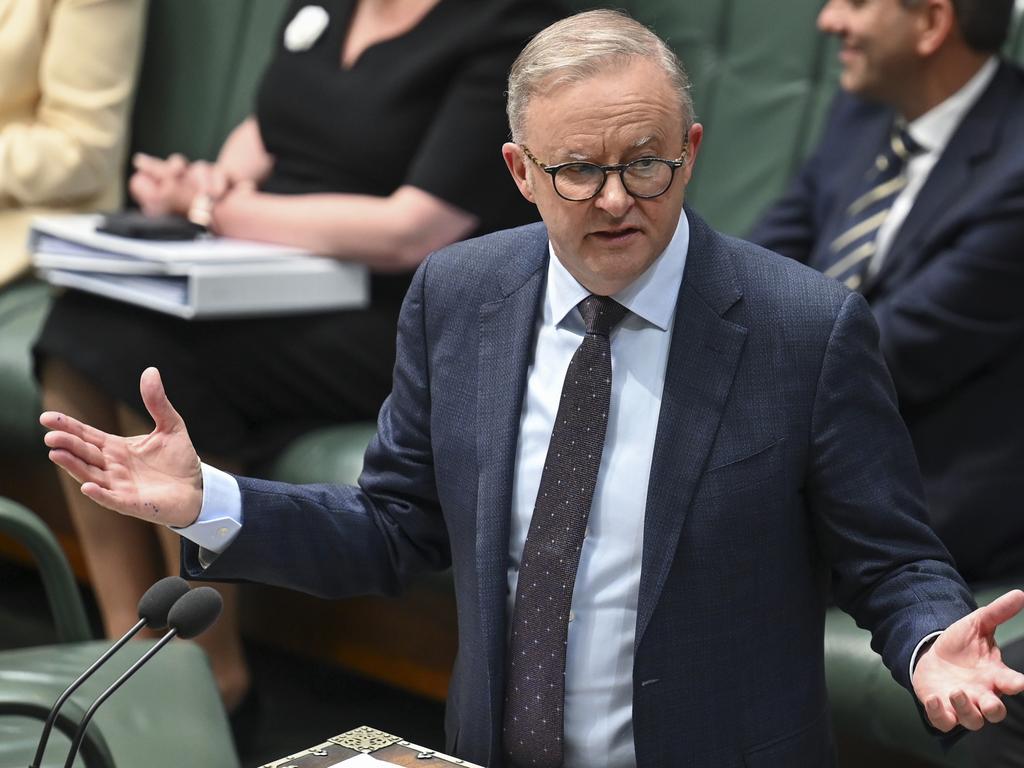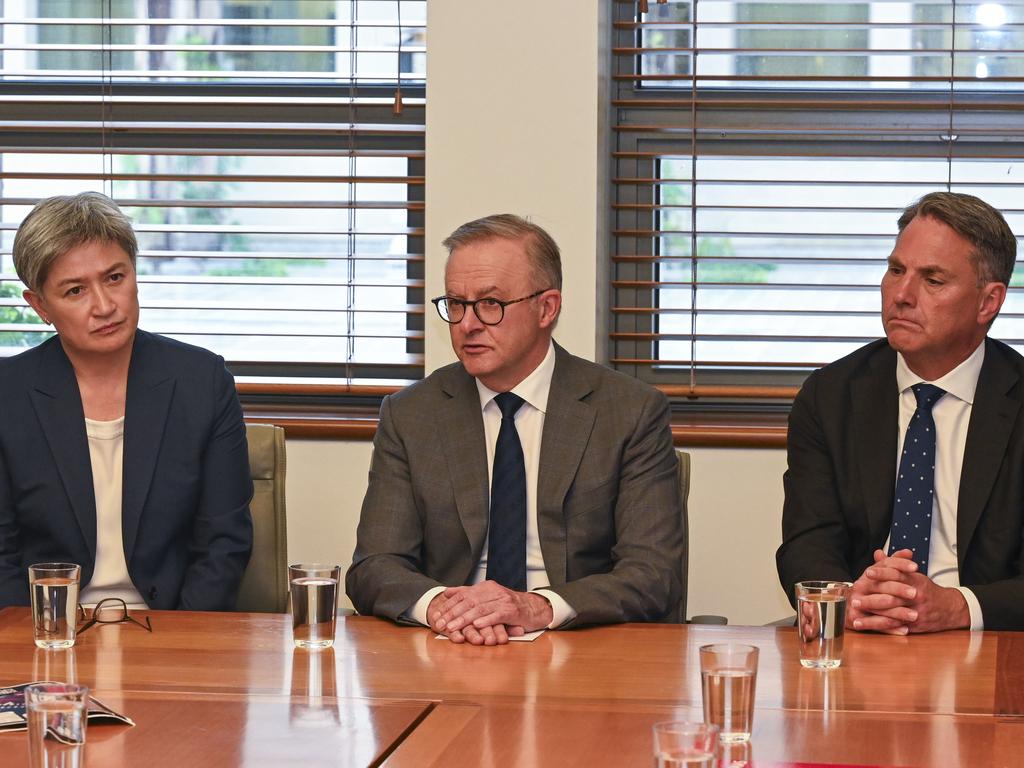Borders, security and economic management return to haunt Labor


None of them he can allow to resurface as legitimately contested space for Labor in government.
Economic management, border protection and national security/defence; all three, however, have now landed back on the Prime Minister’s table with a thump.
As opposition leader Albanese fought to successfully neutralise all of these ahead of the last election. His promise of a safe pair of hands on the economic tiller and the pledge of a unity ticket with the Coalition on boats and defence – despite his own pedigree – were electorally accepted.
But this is now the nightmare before Christmas Albanese had been hoping he would not have to revisit. The political vulnerabilities for Labor that have always been its most acute have now returned to haunt him like ghosts of the Rudd/Gillard past.
Yet there appears to be no political strategy for how to deal with this perilous triumvirate.
Even more lacking is a unified message that would seek to convince the electorate Labor has command of any of them. The polls bear this out.
The memory of its 2013 election loss should be seared into the memories of the more senior members of the Labor caucus.
Internal disunity and the policy crisis over immigration – namely losing control of the nation’s borders – were defining issues.
Albanese has done everything within his power since becoming leader to avoid this topic ever becoming a problem again for Labor in government, even staring down his own left faction on boat turnbacks and offshore processing.
He gets the issue more than many in his caucus, having lived through it last time Labor was in government, and despite his previous ideological leanings.
But this has now been undermined by the complete mismanagement of the High Court’s decision on indefinite detention of criminally convicted non-citizens – a decision now extended by the Federal Court to apply to asylum-seekers. As a result, this issue is unlikely to end as a result of whatever legislation is passed this week. The risk of a repeat of the border disasters of the Rudd/Gillard government is as real as it is perceived.
And whatever political damage has been caused, or may present in the future, it has been entirely of the government’s own making.
While Albanese’s instinct was to look tough, this again was undermined by other ministers who overreached with their attacks on Peter Dutton. Somehow, the government turned a wedge against the Coalition into a wedge against itself. This was a major tactical error on a critical political issue.

On defence and broader national security, again, the government has of its own doing brought an issue back to the table that it had worked hard to politically defuse in opposition.
Albanese’s response to the Chinese aggression against Australian navy divers and Foreign Minister Penny Wong’s handling of the domestic messaging over the Israel-Hamas conflict have undone some of the kudos Albanese had worked hard to establish through his international engagements. Labor was building significant equity in this space. That has been unnecessarily put at risk.
On the economy, the government believes it has a sound story to tell. This narrative, however, has been consumed by the reality that the government presides over a dramatic fall in living standards.
Albanese is also captive to the reality that inflation as an economic problem is not well suited to Labor’s traditional policy toolkit.

And because inflation hurts everyone, Jim Chalmers is in a battle with well-established laws of economics on how to deal with it, which presents a policy dilemma for a traditional Labor government response.
The risk for the government is that it emerges in the new year with Australia having lost its economic pre-eminence among OECD countries, a status it has enjoyed for more than a decade, and being at the back of the pack on dealing with inflation.
This will go to the heart of the political contest over economic management, with Labor having also lost its political advantage over the Coalition on cost of living – aka, handouts – lest it risk adding to the inflation problem.
Albanese has at least one thing going for him. He still has the benefit of a degree of broader unity within the party, despite the recent displays of ill-discipline by members of the cabinet.







There are three core issues that represent political kryptonite for Anthony Albanese if not managed well.